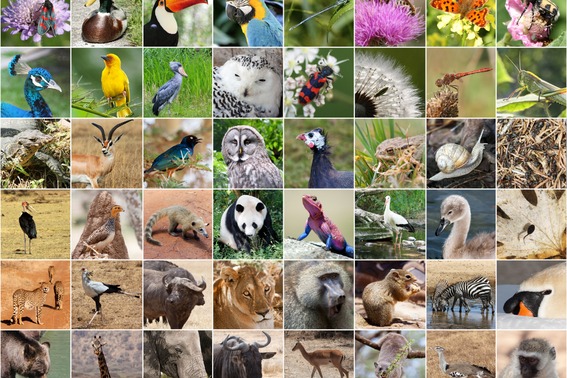
22 Dec. MEP Manuela Ripa on the conclusion of the UN World Conference on Nature COP 15 in Montreal
Ripa: "No habitat must be lost!"
(Brussels/22.12.2022) On Monday, the UN World Conference on Nature in Montreal came to its end with the adoption of a final declaration. On this occasion, some important decisions on measures for the protection of species were made. For example, at least 30 percent of the world's land and marine areas are to be placed under protection by 2030. To achieve this, the northern countries are supposed to pay the countries of the global South around 20 billion dollars by 2025. Some 80 percent of global biodiversity is concentrated in the countries of the tropical belt.
Manuela Ripa, Member of the European Parliament for the Ecological Democratic Party (ÖDP), is pleased that a failure of the conference, which has been questioned for a while, could be avoided: "We are currently experiencing an unprecedented biodiversity crisis. One million species are under threat of disappearing from our planet in the coming years. That is one in eight species! According to scientific findings, we are currently losing
irretrievably 150 species every day. If we still want to save the planet, now is the time to act! Nature conservation has to be perceived in the same way as climate protection - both are necessary for the survival of mankind! With the Montreal agreement, at least a foundation stone has been laid for this."
However, the MEP criticizes the agreed targets as insufficient. Concrete decisions on the implementation of the measures are missing, as well as measurable targets. Manuela Ripa comments: "There are some good aspects in the final declaration, but it is far from being a revolution in the fight against biodiversity loss. Many targets are too far in the future, and the prospects to check the implementation of the targets are not defined precisely enough. Financial aid for countries in the global South is also inadequate, as ambitious conservation targets place greater restrictions on people there than in the rich North. However, in order to maintain our existence, no habitat must be lost."
For the ÖDP politician, it is also clear that the EU and Germany in particular cannot point an incriminating finger at anyone, as they have not done their own homework. "The European Environment Agency warns in its current assessment that many ecosystems in the EU are in a very poor condition due to pollution, overdevelopment, and industrial agriculture with the massive use of pesticides, and that biodiversity is decreasing dramatically. So the EU is not a role model when it comes to protecting biodiversity."
Manuela Ripa also criticizes the lack of German efforts to preserve biodiversity. "All reports on the state of nature in Germany paint a rather gloomy picture. The German government has completely failed with its strategy for more biodiversity, which was adopted back in 2007 because not a single one of the goals which was set there has ever been achieved. More than half of all breeding bird species in Germany are endangered, and dragonflies, reptiles, and amphibians are also threatened. One in five bodies of groundwater is contaminated with nitrates, and less than ten percent of lakes and rivers in Germany are in good ecological condition. Habitats important for biodiversity, such as inland waters, moors, or coastal areas, are increasingly polluted and threatened by overdevelopment and industrialization. The EU and Germany must significantly improve their efforts to protect nature and species - they cannot rest on their laurels from Montreal."
According to the MEP, the citizens are already much further ahead than the politicians, who are often guided by lobby interests: "I am encouraged by the successful petition for a referendum on 'Biodiversity - Save the Bees' by the Bavarian ÖDP. The fact that so many people have signed the petition for the protection and preservation of biodiversity indicates that our citizens expect politicians to act without any delay towards the protection of species. We as ÖDP will continue to fight for these goals," concludes Manuela Ripa.

